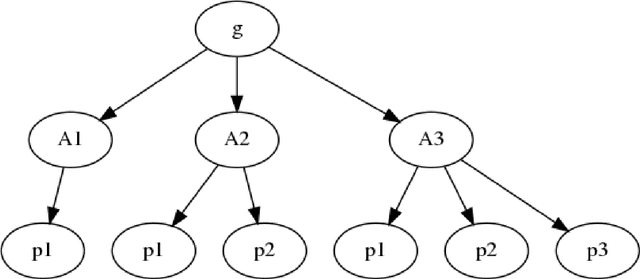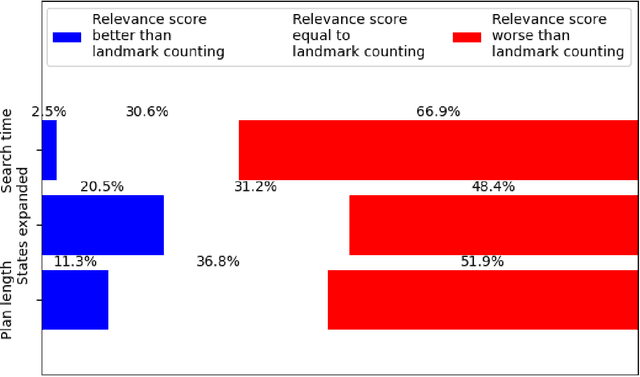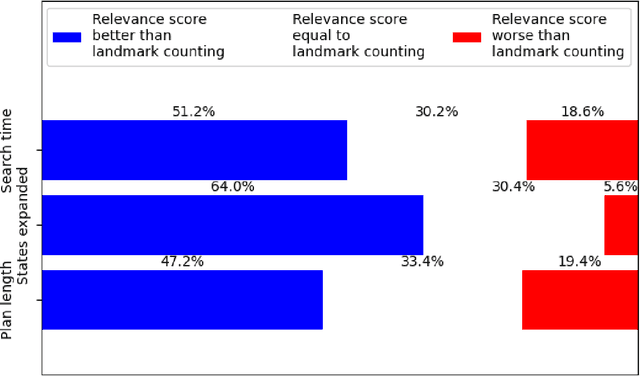Relevance Score: A Landmark-Like Heuristic for Planning
Paper and Code
Mar 12, 2024



Landmarks are facts or actions that appear in all valid solutions of a planning problem. They have been used successfully to calculate heuristics that guide the search for a plan. We investigate an extension to this concept by defining a novel "relevance score" that helps identify facts or actions that appear in most but not all plans to achieve any given goal. We describe an approach to compute this relevance score and use it as a heuristic in the search for a plan. We experimentally compare the performance of our approach with that of a state of the art landmark-based heuristic planning approach using benchmark planning problems. While the original landmark-based heuristic leads to better performance on problems with well-defined landmarks, our approach substantially improves performance on problems that lack non-trivial landmarks.
 Add to Chrome
Add to Chrome Add to Firefox
Add to Firefox Add to Edge
Add to Edge